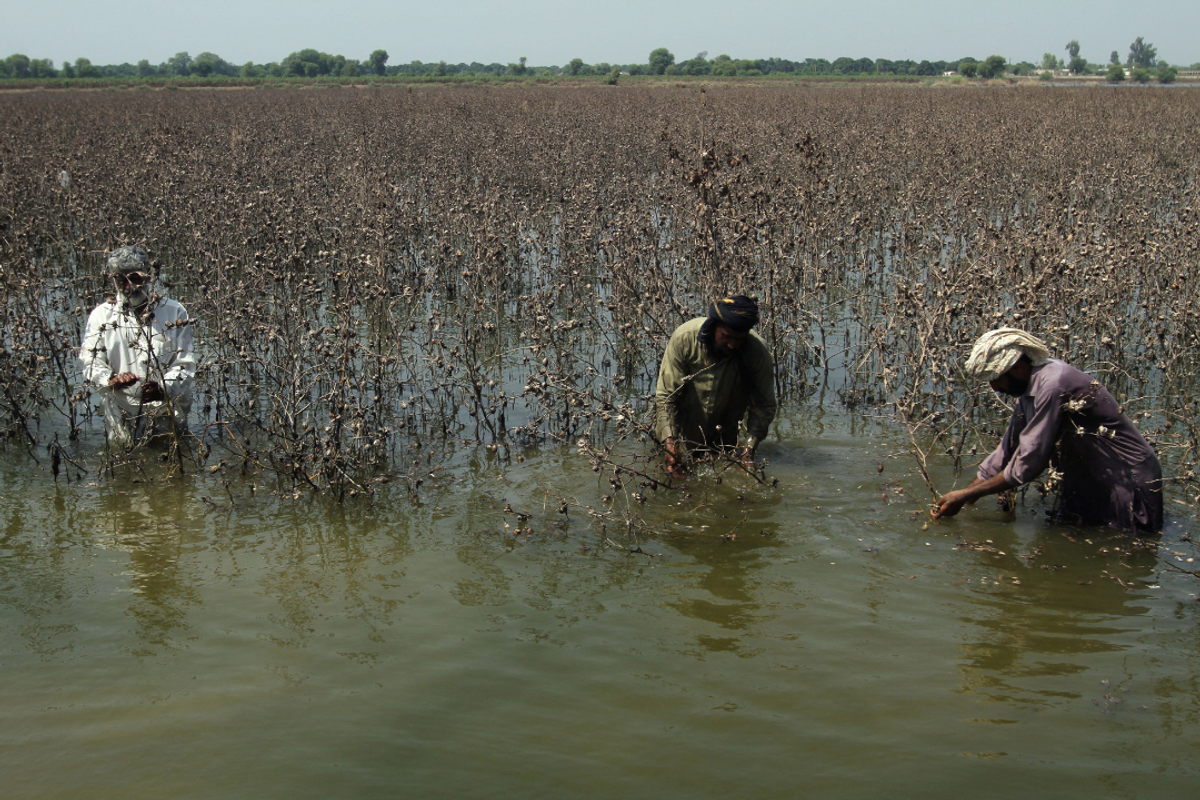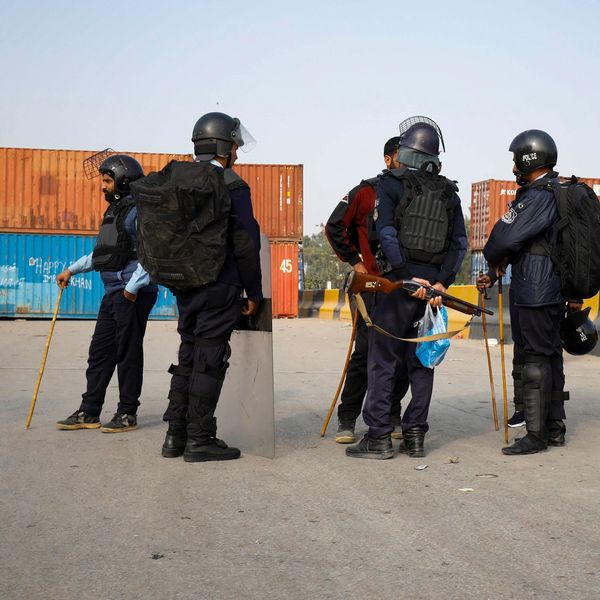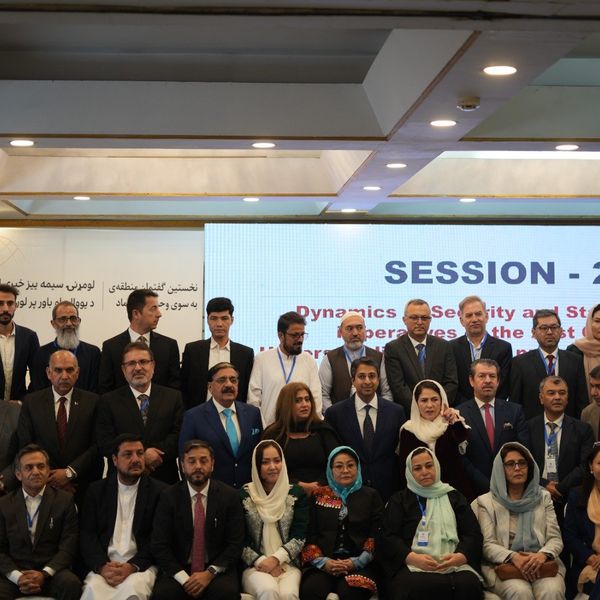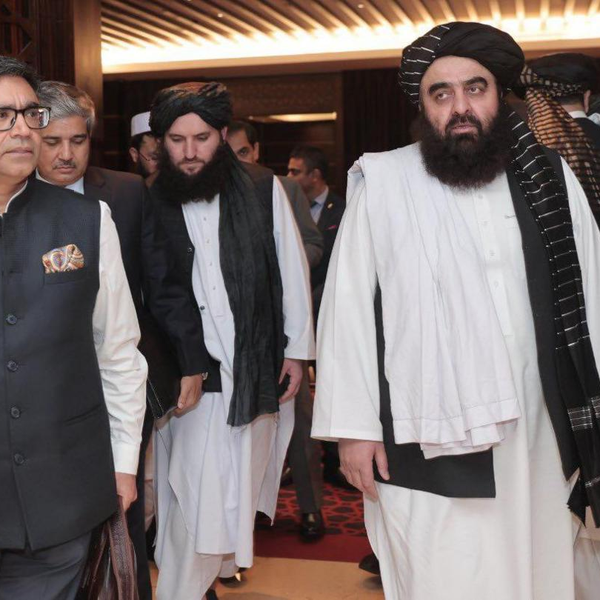Global lenders approached to assess Pakistan flood damage ahead of IMF talks
Letters sent to World Bank, ADB, EU, and UNDP as losses near PKR 700 billion

Haris Zamir
Business Editor
Experience of almost 33 years where started the journey of financial journalism from Business Recorder in 1992. From 2006 onwards attached with Television Media worked at Sun Tv, Dawn Tv, Geo Tv and Dunya Tv. During the period also worked as a stringer for Bloomberg for seven years and Dow Jones for five years. Also wrote articles for several highly acclaimed periodicals like the Newsline, Pakistan Gulf Economist and Money Matters (The News publications)

Farmers inspect damaged cotton crop, following monsoon rains and flooding, in Kabirwala, Pakistan, September 18, 2025
Reuters
Pakistan has formally approached international financial institutions to assist in assessing the economic and infrastructural damage caused by the devastating floods this year, as it prepares to enter a crucial round of talks with the International Monetary Fund (IMF), sources familiar with the matter told Nukta.
Letters have been sent to the World Bank, Asian Development Bank (ADB), European Union, and United Nations Development Program (UNDP), requesting technical support for conducting a post-disaster needs assessment (PDNA), according to officials.
The floods, which heavily impacted Khyber Pakhtunkhwa, Punjab, Gilgit-Baltistan, and Azad Jammu and Kashmir, have disrupted lives, damaged infrastructure, and caused widespread losses to the agriculture sector. So far, preliminary estimates place total damages at nearly PKR 700 billion, but officials say revised figures could be significantly higher.
The Prime Minister’s Secretariat has already shared preliminary findings with the IMF’s review mission, as flood-related economic setbacks continue to shape Pakistan’s fiscal outlook. Sources said that the government is now working to update its damage estimates, which could alter key macroeconomic assumptions for fiscal year 2025-26.
As per the revised estimates, GDP growth for FY26 is expected to slow , down from the budgeted 4.2%, while the agricultural sector’s growth rate could decline to 4.0% from earlier projections of 4.5%.
Agriculture sector hit hard
According to briefings shared with the IMF, the agriculture sector has suffered an estimated loss of PKR 155 billion, including PKR 87 billion in damage to major crops.
Cotton output is projected to fall by 1.5 to 2 million bales, reducing the national yield from 10.2 million bales to as low as 8 to 8.7 million bales. Wheat production could decline by 0.7 to 1.3 million tons, while sugarcane output may drop by 2.3 to 4.3 million tons.
Corn production is also expected to be reduced by 0.5 to 1.3 million tons.
The growth rate for key crops, initially estimated at 6.7%, is now expected to decline to 4.5%, the IMF was informed.
Legislative delays hamper IMF reforms
In parallel to its disaster response efforts, Pakistan is facing delays in meeting several structural benchmarks required under its current IMF loan program, particularly concerning reforms in state-owned enterprises (SOEs).
Key amendments to laws governing the Pakistan Coastal Authority, Pakistan Railways, Pakistan Telecommunication Company, and several other SOEs have not been finalized. The IMF has been briefed that reforms under the SOE Act will now be brought through a revised legislative version.
Proposed changes to the State Life Nationalization Order, EXIM Bank Act, and National Bank of Pakistan Act also remain under review. Discussions on amending the Pakistan Telecommunication Act of 1996 are ongoing, officials said.
“The government’s decision to seek international assistance for damage assessment is a strategic move,” said a Karachi-based analyst. “It lends credibility to Pakistan’s case before the IMF and can open pathways for additional climate-resilience financing. However, delays in SOE reform legislation remain a key sticking point.”
He added that reconciling flood-related economic realities with IMF performance criteria will be critical in the upcoming review.
The IMF is expected to hold special sessions on flood impacts as part of its review of the Extended Fund Facility (EFF). The talks come at a time when Pakistan is seeking greater fiscal flexibility to manage its disaster response without derailing macroeconomic stability.










Comments
See what people are discussing